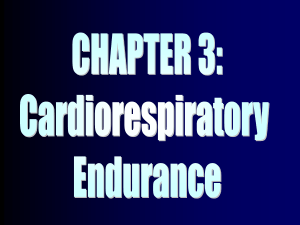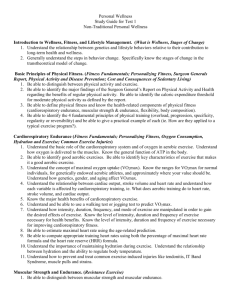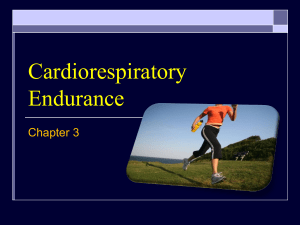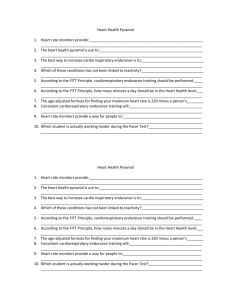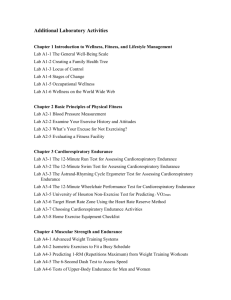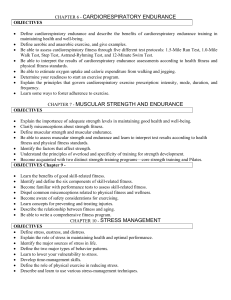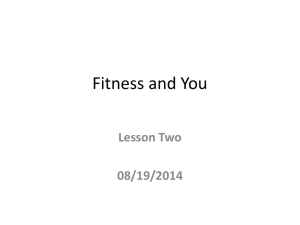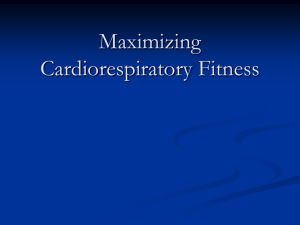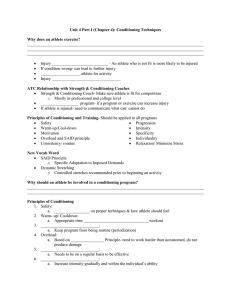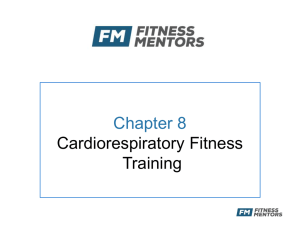cardiorespiratory endurance - Cal State LA
advertisement
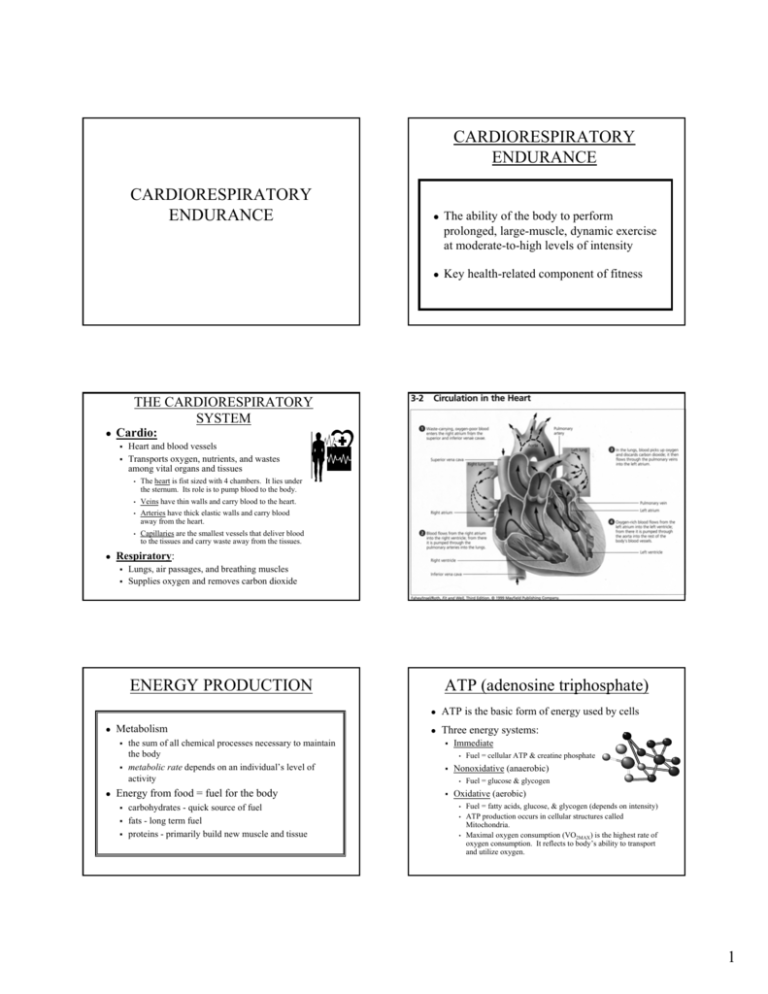
CARDIORESPIRATORY ENDURANCE CARDIORESPIRATORY ENDURANCE z z The ability of the body to perform prolonged, large-muscle, dynamic exercise at moderate-to-high levels of intensity Key health-related component of fitness THE CARDIORESPIRATORY SYSTEM z Cardio: z Heart and blood vessels Transports oxygen, nutrients, and wastes among vital organs and tissues • The heart is fist sized with 4 chambers. It lies under the sternum. Its role is to pump blood to the body. • Veins have thin walls and carry blood to the heart. • Arteries have thick elastic walls and carry blood away from the heart. • Capillaries are the smallest vessels that deliver blood to the tissues and carry waste away from the tissues. Respiratory: Lungs, air passages, and breathing muscles Supplies oxygen and removes carbon dioxide ENERGY PRODUCTION z Metabolism z the sum of all chemical processes necessary to maintain the body metabolic rate depends on an individual’s level of activity Energy from food = fuel for the body carbohydrates - quick source of fuel fats - long term fuel proteins - primarily build new muscle and tissue ATP (adenosine triphosphate) z ATP is the basic form of energy used by cells z Three energy systems: Immediate Nonoxidative (anaerobic) Oxidative (aerobic) • • • • • Fuel = cellular ATP & creatine phosphate Fuel = glucose & glycogen Fuel = fatty acids, glucose, & glycogen (depends on intensity) ATP production occurs in cellular structures called Mitochondria. Maximal oxygen consumption (VO2MAX) is the highest rate of oxygen consumption. It reflects to body’s ability to transport and utilize oxygen. 1 BENEFITS OF CARDIORESPIRATORY ENDURANCE EXERCISE z Improved cardiorespiratory functioning: z increases blood flow to skeletal muscles decreases blood flow to digestive organs increases ventilation increases cardiac output MORE BENEFITS OF CARDIORESPIRATORY ENDURANCE EXERCISE z Improved cellular metabolism: increases capillaries in the muscles trains muscles to work more efficiently may prevent damage to cells increases the number & size of mitochondria Reduced risk of chronic disease: z z z cardiovascular disease cancer diabetes osteoporosis Better control of body fat Improved immune function Improved psychological and emotional well-being DEVELOPING A CARDIORESPIRATORY ENDURANCE PROGRAM z z z Set realistic goals Choose sports and activities you enjoy Determine frequency, intensity, and duration (time) of training z FIT Principle Allow time for warm-up and cool-down THE FIT PRINCIPLE z Frequency z Intensity z 3-5 times per week target heart rate zone or RPE value increase gradually Time total duration of 20-60 minutes per day USING YOUR TARGET HEART RATE ZONE 1. Estimate maximum heart rate (MHR) by subtracting age from 220 2. Multiply MHR by 65% and 90% to find target heart rate zone Start at 65% or below if you have been sedentary 2
